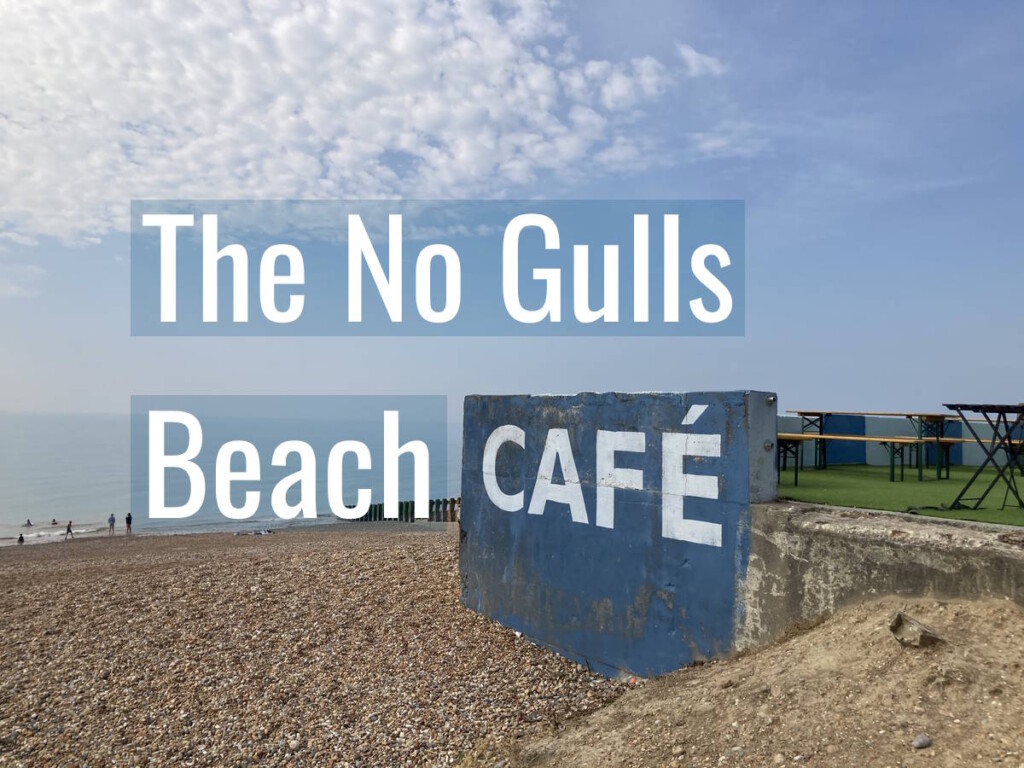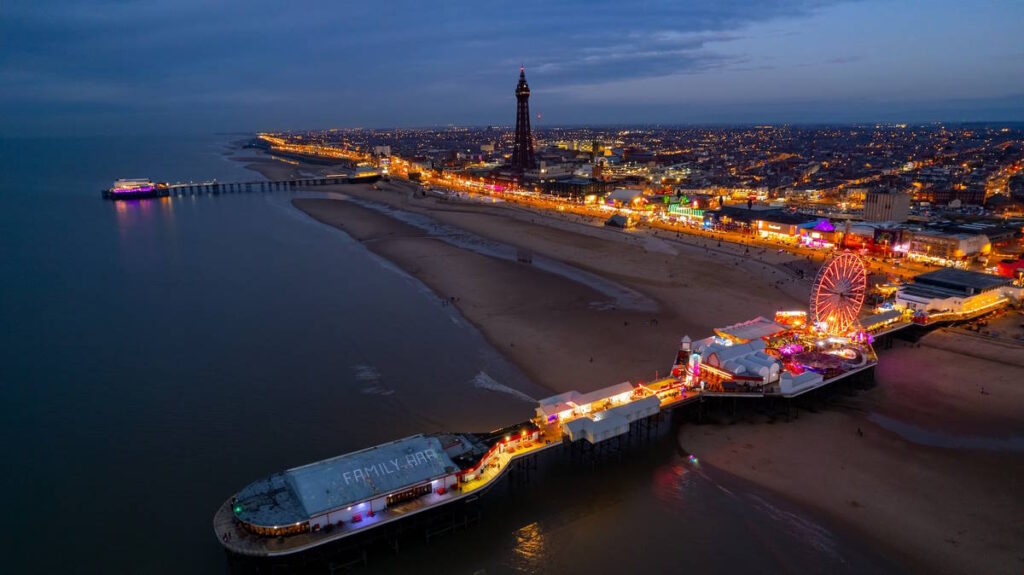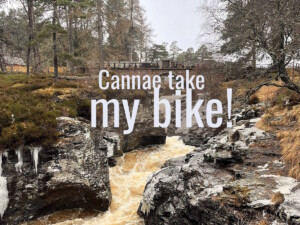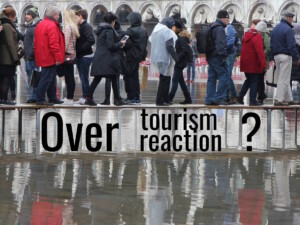‘Where seagulls don’t land anymore’: Are British seaside resorts trending again?

Many British seaside resorts are making a comeback after decades of sniffy criticism led by the media, and despite a persistent narrative of decay and decline.
David Jarratt shares this “Good Tourism” Insight; the second in a series initiated by Tourism’s Horizon, a “GT” Insight Partner.
[You too can write a “GT” Insight.]
Traditional British seaside resorts are often described in terms of their slow decline since the advent of cheap package holidays to the Mediterranean in the 1960s.
Whilst there is some truth to this, the story is not that simple.
For many in Britain, especially working-class families, it wasn’t until the early 1980s that trips to the Med would become affordable and commonplace.
Furthermore, burgeoning competition for tourists’ interest included rural destinations easily reached by car.
Don’t miss other “GT” Insights (or “GT” news posts)
about destinations and places in Europe
Holiday habits certainly changed quickly, yet British seaside resorts still attracted large numbers of visitors. For instance, Blackpool’s popularity remained largely unchecked until the 1980s.
By the 1980s and 1990s, however, most traditional seaside resorts had started to struggle; losing many attractions and guest houses.
Losses were particularly acute for medium-sized resorts that were neither small enough to be exclusive nor big enough to sustain major attractions.
Contents
- ‘Costa Geriatrica’
- The media’s role in the decline of British seaside resorts
- The adaptation and survival of British seaside resorts
- A cultural rapprochement
- Placeism, classism, and the disdain for mass tourism
- Further thoughts on snobbery and mass tourism
- Time for a rebalancing?
- What do you think?
- About the author
- Featured image (top of post)
‘Costa Geriatrica’
Morecambe in Lancashire, for example, expanded rapidly through the 20th century until it saw a rapid decline in tourism numbers and infrastructure as early as the 1970s.
The causes of decline were not always global or national but could be local. For Morecambe, these included a lack of investment in accommodation, over-reliance on one geographical market, and more competitive resorts nearby.
Morecambe was dubbed the Costa Geriatrica due to its association with the elderly.
Don’t miss other “GT” content tagged with
“Coastal and marine tourism”
TV comedian Colin Crompton joked that in Morecambe they don’t bury their dead but prop them up in bus shelters. It was a place where seagulls don’t land anymore.
In The Kingdom by The Sea (1983) American writer Paul Theroux failed to see how anyone could travel to Morecambe for pleasure. He made similarly negative observations about most British seaside resorts.
Even with its impressive new promenade built for the 21st century, Morecambe was listed third in the controversial Book of Crap Towns (2003).
The media’s role in the decline of British seaside resorts
The public perception of seaside resorts like Morecambe, as well as more boisterous places like Blackpool, changed dramatically in the second half of the 20th century.
… the celebrations of the gregarious virtues of the ‘people’ on holiday from the 1890s to the 1950s have given way in the 1980s and 1990s to revulsion at a perceived dominant combination of bloated bodies, alcohol abuse, junk food, litter and aggressive behaviour.
The British Seaside
The media played a role in this decline, annually covering the crisis in the domestic holiday industry, especially the resorts along the coastline.
No wonder then that the British middle class rejected them.
British seaside resorts slipped down the ‘consumption spaces hierarchy’. They became increasingly unfashionable and subject to a seemingly inevitable decay.
The adaptation and survival of British seaside resorts
While places like Morecambe fared poorly in the second half of the 20th century, the story was far more nuanced and less universal than is often suggested.
Many British seaside resorts adapted and survived, despite cultural stigma.
Grange-over-Sands in Cumbria, and other smaller resorts, managed to avoid decline.
Some coastal towns, like Brighton, East Sussex became successful cities, with tourism only a part of their more diversified economies.
And the traditional seaside resort towns of Blackpool in Lancashire and Scarborough in North Yorkshire continued to be hugely popular as holiday destinations.

A cultural rapprochement
Since the start of the 21st century, a cultural warming to traditional British seaside resorts has been underway and seems to be gathering momentum.
Resort destinations that had struggled are seeing attempts at regeneration. The most notable example, perhaps, is Margate in Kent.
Optimism is spreading across many seaside resorts, especially those seen as desirable and/or within commuting distance from major cities.
An important part of this rapprochement is that the built environment of resort towns has become increasingly valued.
Don’t miss other “GT” content tagged with
“Culture, cultural heritage, & history tourism”
Since the end of the 20th century, Historic England has recognised the value of England’s much-diminished seaside heritage.
Perhaps as these sites grow older, such recognition, underpinned by nostalgia, is more readily accepted.
Of late, various events, notably Brexit and the international travel restrictions associated with COVID-19 have boosted domestic interest in British seaside resorts.
Yet the default declinist position of media coverage remains evident; now more likely to take the form of historical context.
Recent successes are contrasted against the long-dominant declinist narrative.
Placeism, classism, and the disdain for mass tourism
Underpinning the over-simplistic narrative of decline of British seaside resorts is a negative appraisal of mass tourism based on classist and placeist prejudice.
A good example is Blackpool’s 2010 application for UNESCO world heritage status. Much of the public reaction to the bid was negative. No wonder it failed.
Claims that a traditional seaside resort — the birthplace of mass tourism — deserved to be preserved as a heritage site were met with incredulity and mirth.
The BBC’s online coverage of the story was inundated with negative comments and jokes made at the expense of the town.
An article in The Guardian entitled “Blackpool: profile of a ghost town”, whilst in some ways sympathetic, did nothing to dissuade stereotypes and declinism.
Also read Jim Butcher’s “GT” Insight
“Why it’s misanthropic to malign mass tourism”
Even today, British seaside resorts split opinions. They are often described as ”tacky”, or worse; linking them to issues of taste, distinction, and class.
Fortunately, as the regeneration and renewal of the British seaside continues, and the snobbery dissipates or is ignored, some reinvented resorts are slowly moving back up the consumption spaces hierarchy. They are becoming attractive again.
Fed by a narrative of decline and notions of taste, classist and placeist snobbery still lingers. Its aim shifts; various resorts in the Mediterranean are currently subject to the disdain that British seaside resorts suffered for so long.
It is all underpinned by what these places represent; the embodiment of mass tourism.
Further thoughts on snobbery and mass tourism
A full discussion of the snobbery toward mass tourism is outside the scope of this piece but I would like to make some brief points about it.
Firstly, when one dismisses or looks down upon tourism, it almost always concerns other people’s holidays. Most people lucky enough to have holidays value them greatly. It’s a time to relax, have fun, come together, and make memories. They are the highlight of the year for many and are not necessarily dependent on location, cost, or environmental credentials.
Don’t miss other “GT” content tagged with
“Carrying capacity, mass tourism, and overtourism”
Secondly, the decline of ageing destinations is not inevitable. They may remain popular with a loyal customer base for many years, even against a narrative of decline. They can be successfully reinvented for new markets; their older attractions valued as forms of heritage. They may well, one day, climb back up the consumption spaces hierarchy.
Even Morecambe, which was written off as a joke, has seen a boom in tourism since the turn of the century and will soon be home to a major investment via The Eden Project.

Time for a rebalancing?
British seaside resorts, as seats of tourism for the masses, have for decades been associated with a lazy narrative of decline; subject to the snobbery of class and place.
When we discuss tourism we should not ignore its challenges. But, equally, we should not unthinkingly slip into easy narratives nor be too quick to judge or dismiss.
Perhaps a more generous and holistic way to consider tourism destinations is in terms of their wider value, not only to host communities and their livelihoods and quality of life, but also what they mean to visitors; their happy experiences.
Let’s remember what we love about our own holidays; the good times.
It’s time for a more balanced discussion of mass tourism and tourist places.
What do you think?
Agree? Disagree? What do you think? Share a short anecdote or comment below. Or write a “GT” Insight of your own. The “Good Tourism” Blog welcomes diversity of opinion about travel & tourism because travel & tourism is everyone’s business.
This is the second in a series of “Good Tourism” Insights from Tourism’s Horizon, a “GT” Insight Partner. Tourism’s Horizon is “a loose group of academics, writers, and tourists who value mass tourism’s cultural and economic contributions to our society, and seek to explore optimistic and expansive futures for the industry”.
About the author

David Jarratt is a Senior Lecturer in Tourism Management within the School of Business at The University of Central Lancashire (UCLan) in the UK. Dr Jarratt’s research interests include tourist motivation, well-being, and sense of place. He has been researching the experiences of visitors to the British seaside. More recently he has considered current issues relating to technology and the environment. (ORCID)
Featured image (top of post)
The British seaside resort of St Leonards-on-Sea, East Sussex. Photo courtesy of Justin Burns. (“GT” added ‘The No Gulls Beach’. The cafe’s name is not ‘The No Gulls Beach Cafe’, nor is there a ‘No Gulls Beach’ in Britain.)





